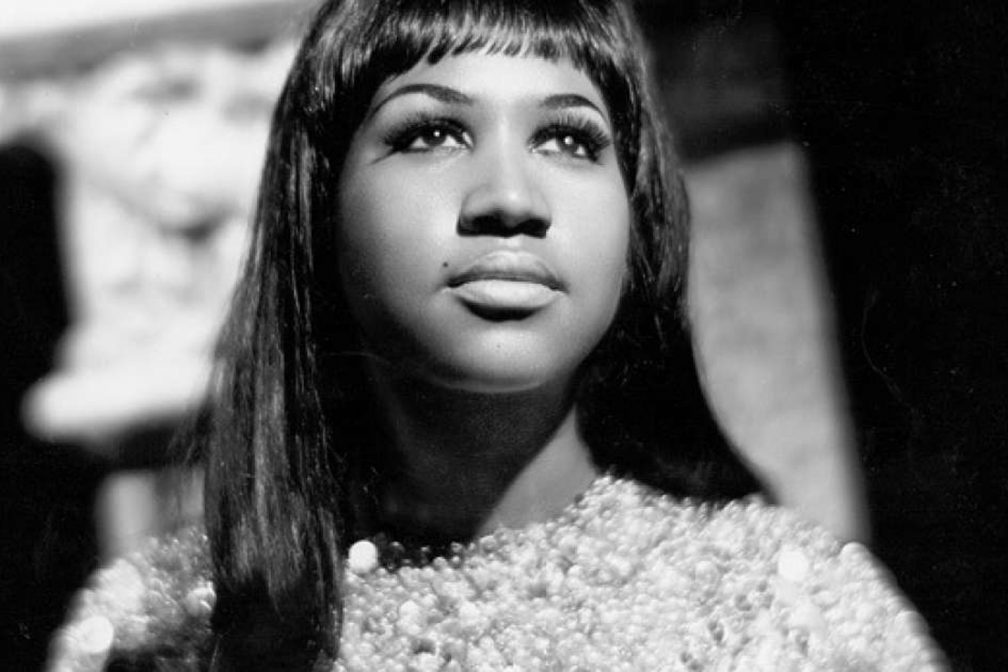 Comment
Comment
Aretha Franklin was the undisputed Queen of Soul
A tumultuous upbringing didn't stop Aretha Franklin becoming one of the greatest singers ever
Aretha Franklin had enough travails in her time to ensure she will forever be placed near the top of the Diva Premier League. Abandoned by her mother at the age of six, two children by the age of 17, a no-good low-down dirty husband as manager and a career as mercurial as her weight (one seemingly a reflection of the other). And in between all of that, she made some of the greatest soul records of all time, as well as being an accomplished pianist in the Nina Simone mould and a fine songwriter to boot. No wonder they called her the Queen Of Soul.
Born on March 25th, 1942 in Memphis, Aretha was one of five children raised by CL Franklin, a preacher who eventually settled in Detroit, and inherited both his fiery temperament and love of music. Her mother Barbara left early on and had died by the time Franklin reached her tenth birthday. Her father was something of a celebrity in Detroit and beyond, recording many of his sermons for release on Joe Von Battle’s JVB Records (the most famous of which is The Eagle Stirreth Her Nest), which also released Aretha’s earliest recordings.
CL Franklin ran the 4,500-strong New Bethel Baptist Church, which included singers such as Arthur Prysock, Lou Rawls, Dinah Washington and Sam Cooke among its parishioners, and he was also friendly with touring musicians like jazz pianist Art Tatum and blues singers Bobby Bland and Clara Ward (someone who exerted a considerable influence on the young Aretha, in the absence of a mother figure). Despite his Man of Cloth status, CL was no prude and certainly liked to have fun, as demonstrated by his reputation as a ladies man (and the fact that he’d been busted for possession of pot can’t have harmed this image either).
Aretha was discovered by legendary A&R man John Hammond (he also signed both Billie Holiday and Bob Dylan) on a demo tape and signed her to Columbia on a seven year deal. Although it yielded nine albums and a few minor hits (most notable among them was Today I Sing The Blues, which made it to number ten in the R&B charts), her stay wasn’t a particularly happy one with the material a confusing mix of gospel, pop, ballads and show tunes often lathered in syrupy strings that further masked the confusion. This period can’t have been helped by her relationship with Ted White, whom she married in 1962 and who swiftly took over her business affairs.
Her stuttering career was saved when Atlantic’s Jerry Wexler stepped in during1967 after the Columbia contract expired. Her first single for Atlantic, I Never Loved A Man (The Way I Loved You) was recorded in Memphis with the Muscle Shoals band and became her first major hit and million seller. “The musical misuse and eventual loss of Aretha as a recording artist disturbed me greatly,” wrote John Hammond in his autobiography, “not least because her career since leaving Columbia has fulfilled every confidence I had in her.” When Hammond quizzed Wexler as to what he did with her in the studio, he replied simply: “I put her in church.”
The follow-up was similarly devastating. Her reading of Otis Redding’s R.E.S.P.E.C.T. turned the song from a simple plea to a sexually-charged feminist manifesto, replete with ad-libbed “sock it to me”s courtesy of her sisters Erma and Carolyn. Otis, who also wrote the tune, commented: “I just lost my song. That girl took it away from me.” Aretha had a way of turning any cover into the definitive version (listen to her reading of the Beatles’ Eleanor Rigby, which she turns upside down, while still making it unique and amazing).
Although her debut was the only recording she made with the Muscle Shoals band (Wexler had a falling out with them), Atlantic appropriated the sound for her subsequent material and despite being recorded in New York, it was often with southern musicians with King Curtis usually working as arranger (when Curtis was tragically murdered outside his apartment in 1971, it was Aretha who sang at his funeral).
She went on to cut a series of great records in the late sixties and early seventies, including I Say A Little Prayer, (You Make Me Feel Like) A Natural Woman, Think (which later became a hit thanks to her appearance in The Blues Brothers movie as guitarist Matt Murphy’s wife) and Rock Steady, one of the finest records ever committed to wax and featuring, among others, Dr. John on percussion, Duane Allman on guitar and a then unknown Donny Hathaway on electric piano.
Her marriage to White was the cause of some anguish and Time once reported that he had beat her up in the foyer of the Regency Hyatt in Atlanta, while her friend the singer Mahalia Jackson said somewhat opaquely, “I don’t think she’s happy. Somebody else is making her sing the blues.” The marriage fell apart in the late sixties. She subsequently married musician Ken Cunningham and actor Glenn Turman (though not at the same time).
Her albums fluctuated greatly in quality, from the excellent Spirit In The Dark to uneven sets like Amazing Grace, her gospel album recorded with Rev. James Cleveland and the Southern Community Californian Choir, which managed to combine the soaring Precious Lord, Take My Hand – the kind of tune that converts atheists – and muddle it up with sentimental showbiz hokum like You’ll Never Walk Alone and You’ve Got A Friend. By the end of the seventies she’d totally lost her way at Atlantic and Clive Davis’ Arista revived her career with a mixture of the ill-advised (her version of the Doobies’ What A Fool Believes) and Jump To It, a Luther Vandross/Marcus Miller-penned song that signalled a return to form, followed by another brilliant Miller/Vandross collaboration, Get It Right.
Subsequently, her recording career was patchy, with the occasional duet yielding some heavy-hitters: Sisters Are Doing It For Themselves with Eurythmics or George Michael on I Knew You Were Waiting For Me. Her last significant hit in the UK was a cover version of C&C Music Factory’s A Deeper Love, a rare excursion into house territory. Over the course of her career, she was nominated 44 times for Grammy awards and won 18, the last in 2007 for Never Gonna Break My Faith. She had 17 Top Ten hits in the US pop charts and countless gold records. In 2014, she had an asteroid, 249516 Aretha, named after her, an appropriate endowment for the woman with the celestial voice. The Queen of Soul is dead. Long live the Queen of Soul.
Bill Brewster is a regular contributor to Mixmag. Follow him on Twitter



